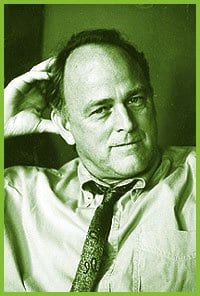“Most ethnic communities in Canada are homophobic,” says Garry, 32 years old, who came from Armenia in 1997, “even though in their own countries people may be less homophobic than here. In Canada, many ethnic communities, such as mine, are very small. Everyone knows everyone else.”
This presents a dilemma for gays and lesbians from visible minorities who want to come out in a strange city and a new land. It is particularly difficult when they wish or need to remain close to their family and their roots.
“I used to joke in Toronto, where I was a student, that I was triply challenged – a student, an immigrant and gay. As an immigrant, you go through cultural shock. When you are gay, you go through a double form of culture shock. You learn to be cautious,” notes Garry.
When he first wanted to have a gay relationship, he was not certain how to approach it. Gay youth do not go through the same dating rituals as straight ones. And for immigrant youth, dating is often linked to your circle of friends or to other families within your community. Your parents do not ask, “How is your boyfriend?” As a newcomer to both Canada and the gay scene, Garry wasn’t sure what was appropriate and what was not. He didn’t know how to meet people, how to be open.
“I was also struggling to learn English. There were times when I could not find the words to express the emotion I was feeling. I have an accent and so people would ask me where I was from. This would unsettle me. I would ask myself why the person is asking that? Are they trying to stereotype me, slot me into some box?”
He indicates that when you are feeling vulnerable, you initially take these kinds of situations as put-downs. This is only reinforced when the other person quickly withdraws from contact with you.
In Toronto, a group of Armenian gay men decided to get together and form a support group. But it didn’t survive. Some men wouldn’t join out of fear or a reluctance to be known as gay within the Armenian community. The five people who were willing to meet were not enough to sustain it.
He moved to Ottawa for work, where he found the gay scene much more private than in Toronto. People meet through friends or acquaintances. He tried to meet someone by going to the bars and on the Internet. But he found often that people were only interested in having sex.
“That is fine. Sometimes it is what you want. But it can also stop you from going to the next step, a relationship. The common response is ‘I am not ready for this.’ What shocks me about gay society is that while we have achieved so many rights in Canada, within the community there is so much discrimination. You go to a gay bar and are judged. When you are from another culture, you are doubly judged. How are you to receive this? It affects the way you react and the way you do things.”
But Garry says that he has changed since coming to Canada. He is more open. Perhaps, he adds, this has to do with being older. But is also because he has been able to see and experience things he would not have been able to do at home.
“In Armenia, I would have had to separate my work and my private life, particularly as I rose in the ranks of my job. At my work here, being gay is simply not an issue.”
In his immediate family, his mother knows he is gay but prefers not to discuss it. His older brother, who is married with children, is increasingly comfortable with his orientation.
“In Canada, there is more about being gay in the media, which is accessible to straight people – just look at all the attention around same-sex marriage. I think for people like my brother, it is not an evolution but an adapting. It just takes time,” says Garry.
As for himself and his own ethnic community, he says that if people ask if he is gay, he replies honestly. But, he points out, it is a question many prefer not to ask.
“At the end of the day, it really doesn’t matter. Those who are important to you accept you. Some politicians have appealed to the ethnic community to oppose the issue of same-sex marriage. But allowing gays to marry, or simply being gay, is not an ethnic issue. It is a social one.”

 Why you can trust Xtra
Why you can trust Xtra


